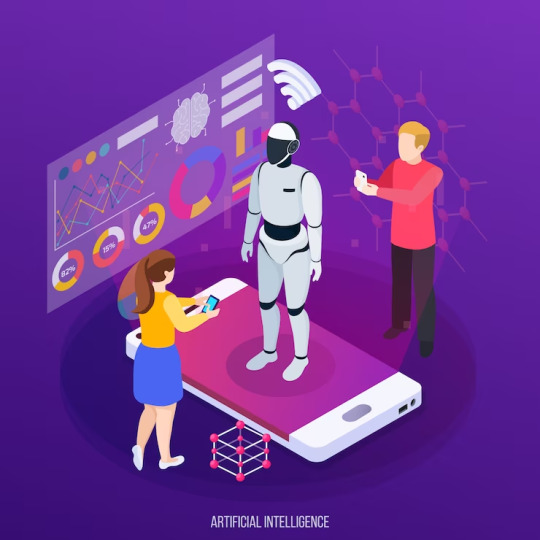#AIandInnovation
Text
Engineering Applications of Artificial Intelligence

The marriage of engineering and artificial intelligence (AI) has given rise to a new era of innovation, transforming industries and revolutionizing the way problems are solved. The engineering landscape, once dominated by traditional methods, is now being reshaped by the remarkable capabilities of AI.
AI's applications in engineering span a vast spectrum of industries and disciplines. In manufacturing, AI-driven robots and automation systems are streamlining production processes, enhancing precision, and minimizing human error. In product design, AI algorithms analyze vast datasets to uncover insights that drive the creation of more efficient, sustainable, and user-centric solutions.
One of the standout applications is predictive maintenance. By leveraging AI's ability to process and learn from large volumes of data, engineers can predict when machinery and equipment are likely to fail, allowing for preemptive maintenance that minimizes downtime and operational disruptions. This not only optimizes productivity but also extends the lifespan of expensive assets.
The construction industry is undergoing a transformation as well, with AI facilitating smarter project planning, risk assessment, and resource allocation. Computer vision, a subset of AI, enables the analysis of construction sites for safety compliance and progress tracking. This technology is also being used to design structures optimized for energy efficiency and structural integrity.
The integration of AI in engineering also extends to energy management and sustainability efforts. Smart grids and energy systems use AI algorithms to balance supply and demand, optimizing energy distribution and reducing waste. This is crucial in the transition to a greener future, where AI-driven insights are driving the adoption of renewable energy sources and the reduction of carbon footprints.
However, the full potential of AI in engineering is still being explored, and challenges remain. Ensuring data privacy, addressing bias in algorithms, and managing the ethical implications of AI are ongoing concerns. Moreover, the need for a skilled workforce adept in both engineering and AI is growing.
Conclusion
In essence, the engineering applications of artificial intelligence are reshaping industries and propelling us toward a more efficient, sustainable, and innovative future. As engineers continue to collaborate with AI, the possibilities are boundless, offering solutions to complex challenges and transforming the way we interact with the world around us.
#AIEngineering#InnovationRevolution#SmartEngineering#AIinIndustry#TechTransformations#AIandInnovation#EngineeringEvolution#AIProgress#SustainableEngineering#FutureofEngineering#AIAdvancements#TechInnovation#EngineeringInnovations#AIinManufacturing#SmartConstruction#GreenTech#AIforSustainability#EngineeringSolutions#AIinDesign#SmartEnergyManagement
0 notes